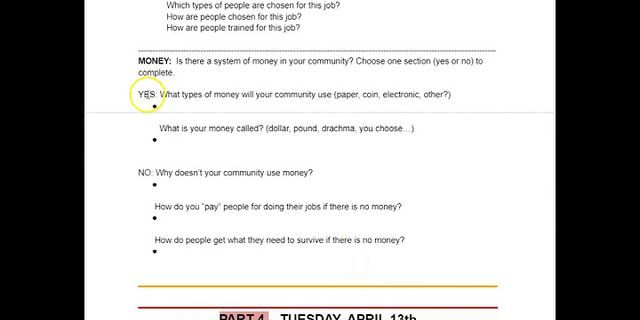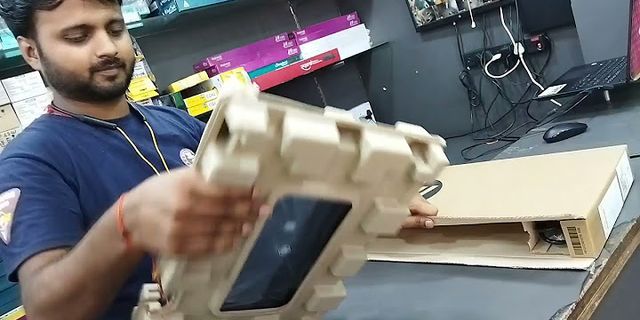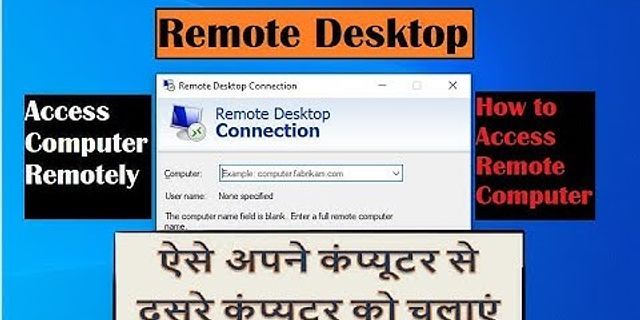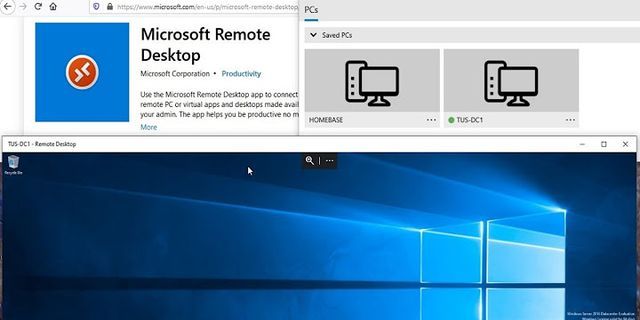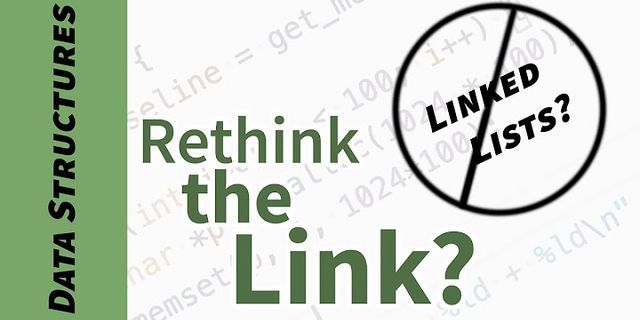This is a Big Topics lesson plan. Show Most people go shopping. Some people really love shopping, while others can’t stand it. But it is a necessary activity that we need to do regularly. In this guide, I want to show you how to talk about shopping in English. I will introduce the different kinds of shops we use when going shopping and then provide you with all the useful things we can say in English for shopping. I cover lots of useful vocabulary and verbs and then I have given you many activities for you to use. You can do these activities in the classroom or in small groups with your friends. Many of them you can still do as one student alone. There is a lot to cover here, so please take your time when reading this guide! Are you ready to begin? Let’s go! What Kind of Shops are there? There are shops for everything you need to buy. In the UK and Australia, we use the word shop. In America and Canada, they use the word store. But they are the same thing. Usually, we apply the word shop or store for the kind of shop that it is. For example, shoe shop, bookstore, clothes shop, sports store and so on. This is a list of most shops and stores you need to know in English along with what you can buy there. Baker/Bread Shop/Bread Store In the bread shop, you can buy bread, cakes, pastries, croissants and other food made from flour. If the shop is a traditional bakery, then they make the bread and cakes on the premises. But many bread shops today are part of a chain and they have all the bread delivered to the shop every day. Corner Shop A corner shop is a British tradition. We can usually find a corner shop at the end of a local street in many neighbourhoods in towns and cities across the UK. Locals usually refer to it as The Corner Shop. A mother might give her young son some money and say: “Go to the corner shop and buy some milk.” The corner shop sells all kinds of household goods and simple food. It also sells newspapers, cigarettes, soft drinks and sometimes alcohol. Market Many towns have a market. You can find a market in some larger cities too. The market is usually an open-air space filled with stalls that sell different items. There could be a fruit and vegetable market and this would only sell fruit and vegetables — and maybe some other food too. This is often known as a farmers market in America. In Asia, it is known as a wet market. But there are markets for clothes, books, second-hand items and electronics. Convenience Store Convenience stores are originally from America. Probably the most well-known convenience store is 7-Eleven. Convenience stores are like corner shops from Britain. The only difference being is that convenience stores are often open 24-hours. We can now find them all over the world — each country has its own brand of convenience stores as well as the global brand 7-Eleven. Butcher This is a shop that sells all kinds of meat. A traditional butcher may be hard to find these days as the larger supermarkets have taken over. A few years ago, a butcher shop would employ people that were trained in the meat industry. They understood how to cut the meat in the right way and could advise customers on different types of meat. But now people usually buy meat in the supermarket. Off License/Liquor Store As the name implies, this is where you buy wine. You can also buy beer and stronger alcohol, such as whisky, vodka and gin. In the UK, we use the term off-license. These shops operate on strict licensing laws. You can only buy alcohol if you are over the age of 18 and during certain times of the day. In America, you must be over 21 to buy any alcohol and the licensing times of day may be different for each state.  Computer Shop/Computer Store This is where you buy computers and all computer parts and accessories. The computer shop is usually privately owned and run by people that have a good understanding of computers. The shop may also run a service department where you can have your computer repaired. Bookshop/Book Store The book shop sells books! Book shops are becoming quite rare these days. Years ago, it was easy to find two or three bookshops in any town. But larger book chains took over and the smaller shops died out. Examples of large book shop chains are Waterstones in the UK and Barnes & Noble in America. But now even the larger chains are against competition as people buy digital books from Amazon. Music Shop/Music Store The music shop sells all kinds of musical instruments and accessories. The staff in the music shop are usually musicians, but not always. Customers can often get music lessons in the music shop. They can learn to play guitar or piano. Chemist/Drugstore/Pharmacy In the UK, we say chemist or pharmacy. In America, they say drugstore or pharmacy. This is where you buy all your medicine. You can buy medicine for a cough and common cold, for headaches and other minor ailments. If you have a doctor’s prescription, the chemist can supply this medicine for you too. Often the chemist sells other products, such as toothpaste, soap, shampoo and skin products. Many countries have chain-store drugstores these days. These are like small supermarkets that sell a big range of health and beauty products as well as medicine. Shopping Mall The shopping mall concept originally started in America. Now we can see shopping malls all over the world. Shopping malls are often very big. There could be several floors. You can buy cosmetics, women’s fashion, men’s fashion, shoes, electronics and home products. There could also be an electronics department. On the top floor, there might be a cinema. And in the basement, a food court. This is full of restaurants, and coffee shops.  Clothes Shop/Clothes Store And the clothes shop sells clothes! These days, we can usually find clothes shops in the shopping mall or department store. But you might still see them in town centres too. Clothes shops usually cater for defined markets. So you might have a clothes shop that sells casual fashion wear for young people or smart clothes for the professional. There are many variations of clothes shops. Do you like my articles and lesson plans? Why not join my mailing list and I can send you new articles and lesson plans when they come out? Join here – ManWrites Newsletter Gift Shop/Gift Store If you want to buy someone a special gift for their birthday or any other celebration, then you can visit the gift shop. Gift shops sell items such as cups and other chinaware, simple kind of jewellery, scented candles, t-shirts and hats with a special slogan written on the front, board games, puzzles and simple decorations. These places are ideal to buy someone a gift, but you have no idea what to give to them. Florist/Flower Shop/Flower Store The florist sells flowers and plants. Usually, a good florist or flower shop can advise you on which flowers and plants to buy. They can present the flowers in a beautiful bouquet too. You can see flower shops everywhere but often near a hospital as people like to give hospital patients flowers. Sport Shop/Sports Store This is where you can buy all your sports clothing, accessories and equipment. The sports shop might sell top range sports shoes such as Nike and Adidas. But also lesser-known brands for tennis equipment or swimming or any other sport. Greengrocer This is a very old-fashioned shop that sells fruit and vegetables. We use the word ‘green’ for all the green healthy vegetables in the shop. These days people usually buy their fruit and vegetables in a supermarket because it is more convenient. But you might still find a traditional greengrocer in a small town. Camera Shop/Camera Store If you need to buy a camera, then you go to the camera shop. The camera shop sells cameras, camera accessories and other photographic equipment. The people that work in the camera shop usually have a very strong interest in photography and have great knowledge of cameras and camera equipment. Some camera shops are still able to process traditional film stock. But these days most cameras are digital. Ironmonger/Hardware Store This is where you buy all kinds of tools for domestic use in the house or garden. Items include hammer, saw, screwdriver, nails and screws. These shops are becoming rare as large chain stores catering to house and home have taken over. Fishmonger/Fish Shop If you want to buy fish for dinner, you can buy it in the fishmonger. The fishmonger is also rapidly disappearing as people usually buy fish in the supermarket these days. If you still have a traditional fishmonger in your town, then the people working there will be experts on what fish to eat and how to cook it.  Newsagent/News Kiosk In the UK, a newsagent is a shop that mainly sells newspapers — Britain has many daily newspapers. But in other countries, people often buy a newspaper from a news kiosk. This is a very small store in the middle of the pavement/sidewalk. People can just stop and buy a newspaper very quickly without actually entering a shop. Boutique/Fashion Store This is a type of clothes shop. It is very fashionable and may sell clothing items unavailable in other shops or stores. The clothes could be unique and special. Pet Shop/Pet Store This is where people buy a pet. You might see pet dogs or cats in the window to attract customers. The people working in the pet store must have a good knowledge of animals. Some pet shops sell exotic pets — such as spiders, snakes or lizards. Most pet stores sell pet accessories and some may sell animal health products. Supermarket There are supermarkets everywhere these days. This is where we buy our food — fruit, vegetables, meat, fish and eggs. Along with other household items such as soap or cleaning products. Supermarkets are designed to be very convenient as we can buy all the regular household items under one roof. Shoe Shop/Shoe Store People buy shoes in a shoe shop. You can find shoe shops everywhere, but these days they are very common in a shopping mall. You can also buy shoe accessories in a shoe shop such as laces and shoe cleaning products. Jewellery Shop/Jewelry Store If you need to buy jewellery, then this is where you come. A jewellery shop sells rings, earrings, necklaces and bracelets. They may also sell special stones like diamonds and rubies. They could also sell gold. Please note the spelling: Jewellery — British English Jewelry — American English Sweet Shop/Candy Store And children love the sweet shop — some adults too! The sweet shop is another dying tradition. Now, if people want to buy sweets or candy, they can buy it in the supermarket or the convenience store. But years ago, sweet shops could be found easily. Usually near a school.  Department Store This is a very large store usually with several floors and many shops or outlets on each floor. Department stores can be big, but not as big as a shopping mall. You can buy clothes, shoes, electrical items and household products in a department store. Sometimes there is a supermarket in the department store. Toy Shop/Toy Store And this is where people go to buy toys. This is another shop that is rapidly disappearing as people usually buy toys in large supermarkets, department stores or shopping malls. There are also large chain toy stores, but people buy many toys online too. Optician An optician is where you go to buy glasses. You can also have your eyes tested here. The optician sells glasses and accessories for glasses. The staff are usually qualified to test people’s eyes.  Exercise Read out loud all the above introductions to different shops and stores. If you find any new words, write them down in your vocabulary notebook. Use a dictionary to find out the meaning of the new words. Then write a sentence of your own using the new words. For example: Croissant — a kind of French pastry made of rolled dough and butter. It is very light in texture. I wanted to get some croissants for breakfast, so I went to the bread shop on the High Street. Do this for all the new words. You should try to expand your vocabulary all the time! Things People Say about Shops Look at the extracts of things people might say when talking about different shops. Practice these yourself by reading out loud. This will give you more confidence in speaking.
Exercise Read through all the extracts. Find any new words you don’t know and write them in your vocabulary notebook. Use a dictionary to find the meanings and then make sentences of your own. Read out loud all the extracts above. Say each one as if it is about you and your life. Then change each extract to fit your own life. For example, the first extract is about a baker. Maybe you want to talk about a fruit and vegetable shop or a butcher. Or maybe you buy bread in the local supermarket. You should try to talk about your own life and the shops in your neighbourhood. The more you do this, the easier it will get. Vocabulary for Shops There is special vocabulary that is suited for shops. Let’s take a look at some of these words below.
Exercise Look at all the vocabulary above. These are words you may use when talking about shops and the things you may find in shops. Go through all the vocabulary and write down any new words in your vocabulary notebook. Use a dictionary to find the meanings of all the new words. Then think of a sentence in your own words using the new words and write that in your notebook too. It should look something like this: Aisle — a passageway or walkway in shops and supermarkets for people to walk. Karen walked along the aisle of the shop looking at all the items for sale. Verbs We Use about Shops and Shopping
Exercise All of these verbs and phrasal verbs can be used when talking about shopping. Go through all the verbs and write any new words or phrases in your vocabulary notebook. Use a dictionary to find out the meanings of any new words. Remember — all the verbs are in the context of shopping. Write down the meanings of any new words in your notebook. Then write down sentences of your own using the new verbs and phrasal verbs. It should look something like this: Pay for — to give money to the shop assistant in exchange for goods or items you found in the shop. I paid $75 for this new shirt, so I hope it looks good. I Love Shopping! This is a presentation exercise. All the students should work individually. Take some time and prepare a short talk about shopping. You should talk about a shop that you like to visit regularly. It can be any kind of shop you like — it doesn’t matter. The following questions can help you with your talk.
In your talk, try to speak between one to two minutes. Local Shops & City Centre Shops This is a group exercise. Get into small groups of three or four students. In your groups, talk about what local shops you have near your homes and what kind of shops you can see in the city centre. Go back to the shops list at the beginning of the lesson plan. Separate all the local shops and city centre shops. Then look at the following questions to help you come up with answers. Local Shops
City Centre Shops
Spend some time in your group to think of as many different local shops and city centre shops. When you are ready, present all your information as one group to all the class. Reading I am a Shopaholic! Read Cheryl’s account below: I know I have a problem. I like to shop and I can’t stop. It’s terrible. I will literally buy anything I see. Every Saturday, I feel the need to go out to the shops and go shopping. I don’t even need anything. I just have this strong desire to buy something, anything at all. Take last Saturday, for example. I woke up at eight am. That’s too early. At the weekend, I could sleep in all day — I don’t have to work, but my brain automatically wakes me up. It’s like it’s telling me to get out of bed and go shopping. So up I get. I wash my face, brush my teeth and have some breakfast. Then I get ready to go out and get on with the task at hand — shopping. I am always the first to arrive at the shops. I get there just before they open. I like to watch as they open their doors and get ready for the customers. Then I spend all day wandering around, looking at the different shoes and clothes. The bags, the bottles of perfume. And all the accessories that can accompany any clothes I might buy — scarves, gloves, jewellery, hats. I love all of it. I always buy at least one expensive item and maybe two or three cheaper items. I never go home empty-handed. If I went to the shops and didn’t buy anything, I think that would just be a big waste of time. But when I get home, I take all the things out of the bags and put them on my bed, and I just feel terrible. I feel like I have a terrible addiction to shopping and it’s taking over my life. And it’s not like I can afford it — I can’t. I have a handful of credit cards and they are all maxed out. It’s got to a point now where I am juggling all the cards, using one to pay off the other. It’s just a matter of time before I get into serious trouble with my finances. And another thing, my friends are all saving money. Some have paid a deposit on a flat. So they are investing their money into the future. While I just go out and buy more designer jeans and fashionable clothes. I have so many shoes, I am running out of room to store them. But all these items are not really worth much money. Once I have paid for them, they then become second-hand. They don’t increase in value. I know I need to stop, but I just don’t know how. I think I need some professional help to get me out of this shopping addiction. What can I do? Reading Comprehension QuestionsWhat does Cheryl like to do? What does she buy? When does she like to go shopping? Does she need to buy something? Why does she go shopping? What time did she wake up last Saturday? Why does she wake up at this time? What time does she get to the shops? How long does she spend walking around the shops? What items does she say she looks at in the shops? How many items does she buy each time she goes shopping? How does she feel when she gets home? Does Cheryl have the money for her shopping habit? What financial problem does Cheryl have? What do Cheryl’s friends do with their money? Do the items that Cheryl buys have any real value? Discussion QuestionsWhat do you think of Cheryl’s shopping habit? Do you know anyone like this? Do you think Cheryl is happy or not? Explain your reasons. Why does she refer to her habit as an addiction? Do you think Cheryl lives alone? Or is she married with a family? Or living with her mother and father? What do you think? Why do you think this? How could Cheryl stop her shopping addiction? Give some useful suggestions. How do you think Cheryl’s friends regard her shopping habit? Do you think Cheryl wears all the clothes and other items she buys? What is impulse buying? Do you buy anything on impulse? If so, what items did you buy? Have you ever bought anything, only to regret it later when you got home? What was the item you bought? Is advertising responsible for making buy things they don’t need? Why/why not? Can you think of any companies that unfairly advertise their products? What do you think about this? Do we have too many shopping malls? Are there too many online stores? What is ‘retail therapy’? Look this phrase up in your dictionary. Do you think retail therapy is a real condition? Does Cheryl have retail therapy? Or does she have a more serious condition? Role Play This is a role play activity. Divide into pairs and choose your roles below. There are two characters in this role play: Cheryl — You are Cheryl in the previous story. You have planned a big day for shopping. There are many sales on, and you want to take advantage of it. You have invited your best friend to go with you. The only problem is — she doesn’t want to go! She says that shopping is boring and that you should both try other things like walking around hills or helping children. What is wrong with her? You need to convince her that you both need to go shopping — or you will miss out on some great bargains. Cheryl’s Friend — You are Cheryl’s best friend. Cheryl has invited you to go shopping — but you don’t want to go. You think shopping all day is a boring activity. You believe there are many other interesting ways to spend your free time — such as walking over the nearby hills, helping out at the local children’s centre or joining a workshop to learn a new skill. There are so many other things to do. You need to encourage Cheryl to not go shopping as you think it is not good for her. And to try to make her do some more interesting things with her free time. You must use all the following phrases in your role play: There are more interesting things to do in life! But the sales are on! Why don’t we do something else? Does it make you feel happy with yourself though? I can’t think of a better way to spend my free time! Do you know how many bargains we can find today? Spend some time preparing your role play. Then, once you are ready, you can show the rest of the class. Debate — Too Many Shopping Malls! This is a debate activity. Divide the class into two teams of equal number. Choose one person to be the debate chairperson. Their job is to chair the debate and ensure everyone has a chance to speak. There are two teams: Team A You think there are too many shopping malls. You strongly believe that they only encourage people to consume and buy and get into debt. You think it would be better if the city spent more money on community centres. There could be more parks and play areas for children. There could be more libraries and areas of culture and learning. You would like the city to redesign some of the shopping malls into museums or libraries. And for the older ones to be knocked down. They could create parks and other places where people can relax, and play games instead. Team B You think there is no problem with the number of shopping malls in the city. The number is just fine, and the shopping malls provide a lot of advantages. The first advantage is that they provide a lot of jobs for people. All the shops need staff who are well-trained and able to deal with the customers. Plus the shopping malls need security staff, cleaning staff, maintenance workers along with accounting, marketing and human resources. Each mall is a huge employer. The malls also pay a lot of money in rent each month and this is good for the city’s economy. And people like to go shopping! It is not a dangerous activity at all. People can enjoy shopping under one roof along with all the other services the malls offer such as restaurants, coffee shops and cinemas. In your teams, discuss what you want to say in the debate. Prepare all your lines of argument carefully. Then, when you are ready — begin the debate! Conversation QuestionsAsk and answer all the questions below in the class. If you are one student working alone, read the questions out loud and answer them as best you can. What do you think about shopping? What kind of things do you like to buy? What is the most money you have spent on one item? What was it, and why did you buy it? Where do you usually go shopping? Can you describe the place you like to go? Do you shop online? What is the difference between shopping online and going to a real shop? Do you like to go shopping on your own? Or with others? What is the difference in feeling? Do you pay attention to the cost of items when you go shopping? Why/why not? Do you save money to buy something? Or do you pay for things on credit? Why do you do this? Have you ever bought anything you don’t need? What was it? Why did you buy it? What is a reasonable amount to spend on a pair of jeans? How about a fashionable shirt? Or some shoes? Do you ever buy fake products? Or not at all? Why/why not? Think of three items you would like to buy today if you had the money. Why do you need to buy these things? Do you believe ‘shopping therapy’ is a real condition? Can it help people? How? Are there too many shopping malls in your town or city? Or not enough? Explain your reasoning. What are shoplifters? Do you have these people in your country? Why do they do this? What do you hate about shopping? ConclusionSo there it is. I have not covered everything to do with shopping — that would require a small book, I think! But I have given you a lot of useful vocabulary and phrases to use when going shopping. I hope all the activities were useful for you and that you were able to put all the new words about shopping to good use. Keep practising and make sure to note down any new words you find. Use a dictionary all the time — this is very important! Let me know what you thought of this guide in the comments below. I would love to hear from you. Many thanks! |










